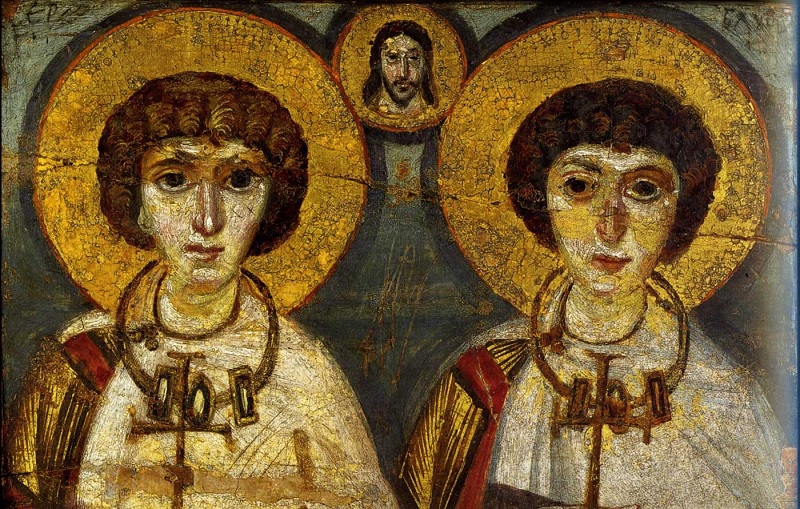So many of us are lonely. Modern Western culture — Christian and not — has all but lost its rich heritage of friendship. Below is my first try at writing out an idea I call “Covenantal Friendship.” I wrote this piece to get out of an assignment for a seminary counseling course. I’d treasure your feedback.
What’s Wrong?
In a 2011 address to the Biola University student body, Dr. Matt Jenson argued, “The Church is right to tell gay people the good news and call them to a life of discipleship if, and only if, it is willing to live as their family. If the Church is unwilling to be family to gay people, it has no business giving them the gospel.” The larger scope of his argument is that the Church is the Family of God, equipped to combat rapidly-increasing feelings of loneliness, especially singles and those struggling with homosexuality. However, if families view the natural family as their primary family and the family of God as secondary, lonely singles and homosexuals will have to be satisfied with leftover care.
The New Testament is riddled with exhortations to look especially to the good of our brothers and sisters, but even that has limits. Last summer, I lost a number of good friends to marriage. I think especially of the mingled joy and grief of standing beside four different roommates as they married their “new roommates.” Living alone in a basement room, aching for a daily prayer partner, I know the way forward cannot be my friends’ choosing me over their covenant partners. When a friend gets married, you fall to, and will never rise higher than, their “number two.” You have to learn to pray alone.
Reflecting on the chronic ache of loneliness, Dr. Wesley Hill recounts an email from a friend in his book, Spiritual Friendship: Finding Love in the Church as a Celibate Gay Christian:
Call it weakness, I just need to be needed by a companion who is there when I return from work, there when I walk in the park. … In short, I desire a covenantal relationship where my helper and I witness each other’s “moments of being” (Virginia Woolf’s lovely expression) otherwise I dread the thought of having those moments forever unwitnessed.
Without disregarding the good that the Family of God is able to offer lonely Christians, it is still, frankly, less than they need. So what is the way forward?
Relationships require models. That is why my class is being trained in methods of pre-marital counseling. But as I hope to have demonstrated above, our relationship models don’t meet the needs of those who suffer from the chronic ache of loneliness, now a cultural epidemic. As marriage is not an option for everyone—by vocation, sexual orientation, or just the lack of a spouse—a true way forward will require an alternative relationship model and an alternative counseling model. And as is often the case, the way forward here is actually a retrieval project.
Covenantal Friendship
Having discovered a tomb in the chapel of Christ’s College, Cambridge shared by two men, Alan Bray began to research the history of friendship in England, writing a book in historical ethics called The Friend. In his book, he talks about rites of brotherhood in Eastern and Western Churches alike. In the East, there was performed a ceremony called “ἀδελφοποίησις” (a combination of the Greek words for “brother” and “to make”) in which churches corporately recognized covenantal friendships between two men, solemnized by vows, hymns, and the purchase of a shared burial plot. In the West, there was a Catholic rite called Ordo ad Fratres Faciendum. But that kind of relationship is incomprehensible to the popular modern mind.
If there is going to be a movement that causes Covenantal Friendship to resurface in modern, Western churches, it will need to do three things: provide education on the nature of friendship, brand the relationship by defining its essence, and offer friendship-specific counseling training to churches who want to celebrate rites in their churches.
The idea of Friendship has fallen from a high place. That which Aristotle called “the flower of ethics, and the root of politics,” and which Cicero said to place “above every other human concern that can be imagined” because “nothing else in the whole world is so completely in harmony with nature, and nothing so utterly right,” has been all but lost.
The greatest exploration of Christian friendship is found in Aelred of Rilveaux’s 12th century treatise, On Spiritual Friendship. Beginning with Cicero’s definition, “Friendship is mutual harmony in affairs human and divine coupled with benevolence and charity,” he changes one word: “harmony” to “conformity.” The agreement which Christian friendship requires can only be achieved by agreement with Christ. In this conformity, two friends may fulfill Christ’s words, “Greater love has no one than this, that someone lay down his life for his friends.” But if Christian friendship does this, why make the jump to Covenantal Friendship?
Covenantal Friendship is of a different kind than mere Christian friendship. Covenants require a special kind of loyalty. Of the four paradigms Gilbert Meilander lists for navigating the tensions of particular and universal loyalty in Neither Beast Nor God, he argues that we must learn universal lessons in particular arenas: “Suppose we speak of “Friendship to all the world.” … “Friendship to all the world” could mean nothing to us did we not experience particular friendships… Our loyalties begin closer to home, and we then extend their meaning in ever widening circles.” Covenantal Friendship, then, would be an alternative relationship covenant to marriage that forms the Christian for a life of sacrificial love for the world.
These are the minimum necessary conditions for Covenantal Friendship. Preparing two friends for a covenantal commitment to which they can be justly held accountable requires a particular kind of counsel from their church. A preliminary exploration continues below.
A Way Forward
[As my friend, Cole, pointed out: “This type of friendship might need virtue-ethics embedded into it.” I couldn’t agree more. But moral maturity is learned from a community, not a blog post. All I can accomplish below is to draft a recipe; the responsibility to cook I leave to my reader.]In addition to education about the purpose of Covenantal Friendship, counseling should include a discussion of other relevant topics, including its prerequisites, potential pitfalls, limits, and methods of renewal. While we can easily borrow several pre-marital counseling topics, like conflict management and relationship expectations, friendship comes with its own unique challenges. Frankly, experience teaches us that friendship is hard enough, let alone Covenantal Friendship. Many of us could benefit from discussing a friendship with a trained counselor.
As Hugh Black points out, “Friendship needs delicate handling. We can ruin it by stupid blundering at the very birth, and we can kill it by neglect. It is not every flower that has vitality enough to grow in stony ground.” And the quote isn’t mere sentiment. Hugh Black, who served as the Chair of Practical Theology and Union Theological Seminary at the turn of the 20th century, held honorary doctorate degrees from both Princeton and Yale. The lettered man knew his classics and his Bible, and he knew how to apply both. A longer study would further investigate both his and Aelred’s practical paradigms for enriching Christian friendship.
Black’s pre-requisites for a friendship that could be “consecrated,” are trust toward one another and faithfulness toward both one another and God. Aelred uses the word “loyalty” in place of faithfulness, and adds the virtues of discretion and patience. I think that to these private virtues must be added a shared vision for the public good. Without such a vision, friends would not be able to agree why one would pass up the other for a position, office, or opportunity.
Among potential pitfalls, Black lists sins of speech, the difficulty of distance, the dangers of money-lending, and the cultivation of mistrust, the last of which Aelred emphasizes. While many of these overlap with marriage, friends should make specific plans for two of the above topics. First, because friends don’t share bank accounts the same way married couples do, they need to talk about expectations and policies for sharing money. Second, because friends don’t typically share living spaces, they should agree on where they’ll live, whether they’ll live together and, if they do not, how regularly they will see one another.
Aelred emphasizes the preventative measures that can be taken to avoid conflict. His plan is to cultivate specific virtues: stability, constancy, frankness, congeniality, sympathy, and honor. But when conflict does occur, Black emphasizes the primarily private nature of conflict resolution and the dual responsibility of addressing it. Confession and confrontation are equally important values for him.
Finally, a good counseling session would address the limits of friendship. While all relationships share the limit of a “fundamental aloneness before God,” friendship is still more limited than marriage. Hill quotes Catherine Wallace to this effect: “The fact remains that marriages are different in degree from friendships. … We must undress, both emotionally and physically, in order to satisfy our deepest needs for fullest intimacy.”
However much danger our inflated ideas of marital intimacy are of being broken, perhaps our inflated ideas of amicable intimacy are in even more danger. Even reading Aelred is dangerous: he wrote in the context of a monastery. Evaluating my friendship experience against his would be as unfair—and dangerous—as evaluating mine against Harry, Ron, and Hermione. We should use this lens to examine his claim, based on his reading of John 15:13, that friendship extends to the point of death.
(If the bar of Covenantal Friendship is too high for many modern men to participate meaningfully in it, I concede that we ought to make a distinction between Public and Private Covenantal Friendship.)





4 Comments
Leave your reply.